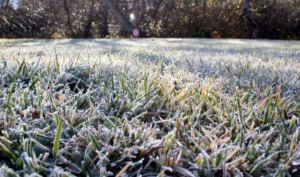
Lawn irrigation winter guide
As it gets close to winter, it’s important to understand how the change in weather can affect your lawn. Increased rain will throw off your
28-30 Papagni Avenue, Newton | 48 Tiver Road, Evanston South | 526 Waterloo Corner Rd, Burton
OPEN 7 DAYS
When starting your garden, soil is the foundation that your plants build off. Therefore, it is important that you’re using the right soil for the plants you’re trying to grow. Soil is made up of five key components: mineral particles from the soil bedrock, organic particles from organic matter (humus, decomposed plants and soil animals), Water, Air and living organisms (including bacteria, fungi and small creatures).
All good soil has several key characteristics, it has to drain freely and have good water holding capacity. Have high levels of organic matter. Have a loam mix of about 40% sand, 40% silt and 20% clay. It also must be slightly acidic to best absorb nutrients.
Water holding capacity with good drainage allows the soil to get ‘wet’, hydrates plants, provides a liquid solution for transporting minerals, and has spaces between the soil particles which means the plants don’t ‘drown’.
Organic matter provides slow release nutrients for our gardens. Nitrogen, Phosphorus and Sulphur as well as microelements critical for plant health.
Soil acidity is important because it affects whether minerals are released for plants to take up. A soil pH of between 6 and 6.8 is where plants can most easily access these minerals. It is worth remembering that as organic matter decomposes the soil pH can be much higher.
The size of the mineral particles can vary enormously. Clay (tiny) has good water and nutrient holding capacity but doesn’t have air spaces for water and air movement. Sandy soils are the other extreme having large particle sizes and air spaces but have much less surface area to hold water or nutrients. The ideal is a combination of clay/silt/sand which balances the strengths and weaknesses of each and is called loam.
Enrich the soil with compost and organic matter. Improving the soil now will give your garden flowering and growing power for Spring and Summer.
If you have new beds, you can dig it in the depth of your spade.
If you are reviving existing garden beds, scratch Jeffries Organic Compost into the top 10cm or so of soil, being careful not to damage any roots.
Don’t forget your raised garden beds, and wicking beds, which will also thank you for adding Organic Compost in. If you need to add more soil to these areas, then Jeffries Veggie & Garden Soil is ideal as it contains Organic compost as well as resists compaction which is common in beds like this.
A big thanks to our friends at Jeffries for the info in this article.
Related Products.
Expert advice from the Newton’s crew, ask away.
Copyright © 2022 Newtons Building & Landscape Supplies all rights reserved | Term & Conditions | Privacy Policy
Newtons Building and Landscape Supplies has a huge range of products for tradies, builders, and DIY enthusiasts. From sand, metal, and rubble to cement products and masonry blocks, we have everything you need for your building or renovation project.
Discover the benefits of Hebel, the high performance building product made from Autoclaved Aerated Concrete (AAC). Newtons Building and Landscape Supplies are proud to stock Australia’s only manufacturer of AAC by CSR Hebel. Experience the durability and versatility of Hebel blocks and panels for your next construction project.
Newtons Building and Landscape Supplies is your one-stop-shop for irrigation needs. Our range includes rural and domestic irrigation products and systems, poly pipe, sprinklers, valves, irrigation controllers, poly fittings, and more.
Newtons Building and Landscape Supplies have a huge range of landscape garden supplies available. From mulches and ground covers, fertiliser, turf to compost, soil and loam, we have it all. With over 6000 products so you can be sure that we have everything you need to build the perfect home and garden.
From patio pavers to garden edging, Newtons Building & Landscape Supplies has you covered. Our Adelaide paving centre offers a massive range of products, including modern and traditional sleepers for retaining walls and more.
Newtons Building and Landscape Supplies has everything you need for rainwater tanks, pumps, pump repairs, and drainage solutions. We sell top brands like Maxiplas, Amari, Bushmans, Team Poly, and more. Our expert staff can help you choose the right product for your needs. We also offer custom-engineered sump and pump packages for hassle-free installation.
Explore the best professional-grade tools and safety equipment at Newtons Building and Landscape Supplies. We stock a wide range of high-quality tools and safety equipment for professionals and DIY enthusiasts. With specialised tools for bricklaying, concreting, landscaping, plastering, and tiling, we have the right tool for every job.
hop the best artificial turf, instant lawn, and fertiliser supplies at Newtons Building and Landscape Supplies. Our range includes a variety of options to suit your needs, from natural-looking synthetic grass to lush, green instant turf. We also stock a range of accessories to make installation a breeze.
Looking for purified water in your home? Newtons Building and Landscape Supplies offer a range of water filter systems to suit your needs. Choose from undersink filter systems that turn your existing tap into a filter tap or whole house systems for chemical-free water throughout your home.

As it gets close to winter, it’s important to understand how the change in weather can affect your lawn. Increased rain will throw off your